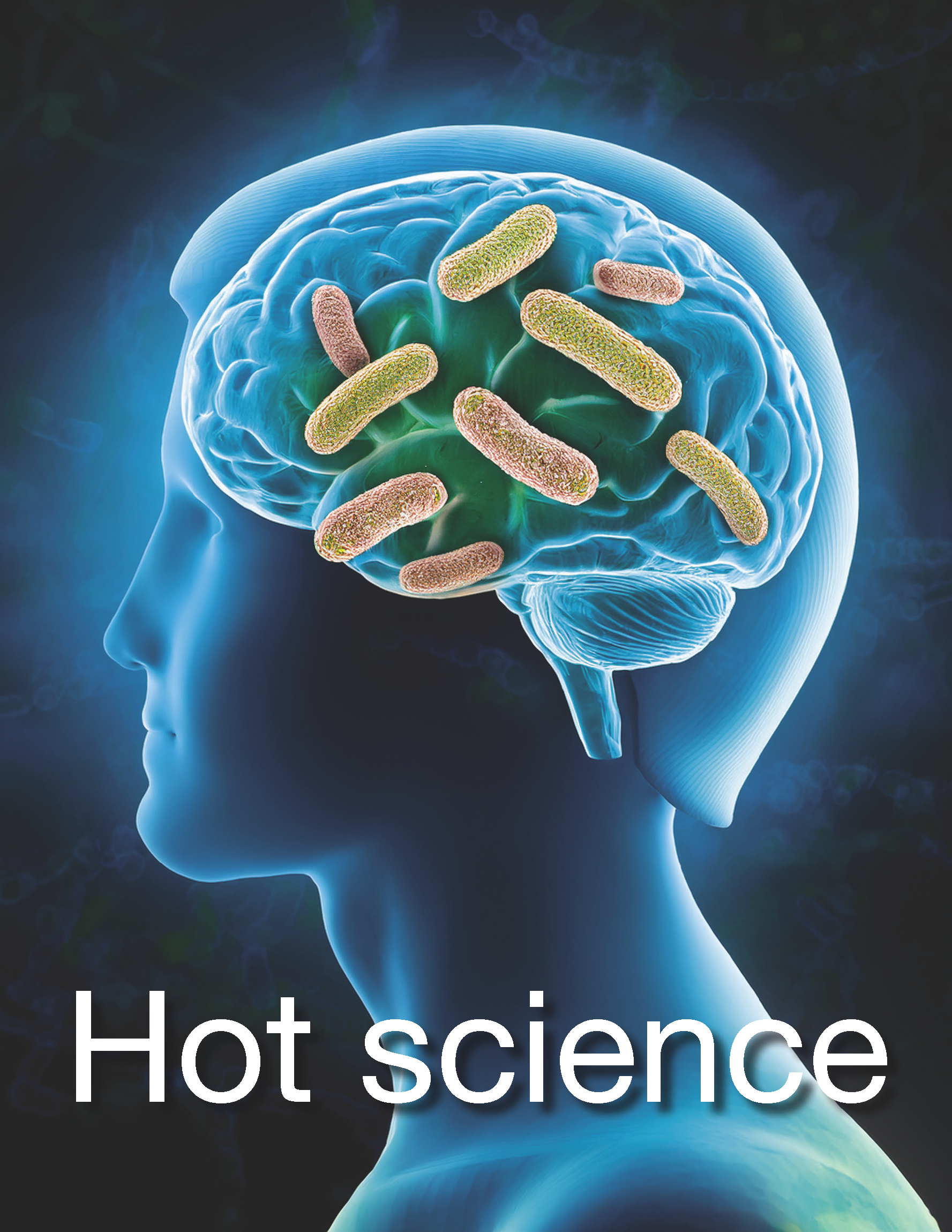Oral microbiota: the hidden key to brain health
Keywords:
Dysbiosis, microbiota, neurodegenerationAbstract
The human oral microbiota harbours a great diversity of microorganisms that can interact with each other and with the host to maintain a symbiotic balance. However, various factors can alter its composition, leading to dysbiosis, a process in which potentially pathogenic species proliferate and affect oral health, triggering a variety of oral diseases. In addition, dysbiosis has been linked to the development of neurodegenerative diseases due to proinflammatory mechanisms caused by the colonization of the brain by oral bacteria through various pathways. It is therefore essential to maintain good oral hygiene and monitor oral health.
References
Giordano-Kelhoffer, B., Lorca, C., Llanes, J. M., Rábano, A., Del Ser, T., Serra, A., & Gallart-Palau, X. (2022). Oral Microbiota, Its Equilibrium and Implications in the Pathophysiology of Human Diseases: A Systematic Review. Biomedicines, 10(8), 1803. https://doi.org/10.3390/biomedicines10081803
Li, X., Kiprowska, M., Kansara, T., Kansara, P., & Li, P. (2022). Neuroinflammation: A Distal Consequence of Periodontitis. Journal Of Dental Research, 101(12), 1441-1449. https://doi.org/10.1177/00220345221102084
Peng, X., Cheng, L., You, Y. et al. Oral microbiota in human systematic diseases. Int J Oral Sci 14, 14 (2022). https://doi.org/10.1038/s41368-022-00163-7
Bello-Corral, L., Alves-Gomes, L., Fernández-Fernández, J. A., Fernández-García, D., Casado-Verdejo, I., & Sánchez-Valdeón, L. (2023). Implications of gut and oral microbiota in neuroinflammatory responses in Alzheimer’s disease. Life Sciences, 333, 122132. https://doi.org/10.1016/j.lfs.2023.122132
Tao, K., Yuan, Y., Xie, Q., & Dong, Z. (2024). Relationship between human oral microbiome dysbiosis and neuropsychiatric diseases: An updated overview. Behavioural Brain Research, 471, 115111. https://doi.org/10.1016/j.bbr.2024.115111
Sansores-España, L., Melgar-Rodríguez, S., Olivares-Sagredo, K., Cafferata, E., Martínez-Aguilar, V., Vernal, R., Paula-Lima, A., & Díaz-Zúñiga, J. (2021). Oral-Gut-Brain Axis in Experimental Models of Periodontitis: Associating Gut Dysbiosis with Neurodegenerative Diseases. Frontiers in Aging, 2, 781582. https://doi.org/10.3389/fragi.2021.781582
Tao, K., Yuan, Y., Xie, Q., & Dong, Z. (2024). Relationship between human oral microbiome dysbiosis and neuropsychiatric diseases: An updated overview. Behavioural Brain Research, 471, 115111. https://doi.org/10.1016/j.bbr.2024.115111
Mishra, M., Ranjan, R., & Abhinay, A. (2018). Can oral microbial infections be a risk factor for neurodegeneration? A review of the literature. Neurology India, 66(2), 344. https://doi.org/10.4103/0028-3886.227315
Olsen, I., & Singhrao, S. K. (2015). Can oral infection be a risk factor for Alzheimer’s disease? Journal of Oral Microbiology, 7(1), 29143. https://doi.org/10.3402/jom.v7.29143
Tran, T. T. A., Kang, Y. J., Kim, H., Kim, H., & Cho, H. (2021). Oral Pathogenic Bacteria-Inducing Neurodegenerative Microgliosis in Human Neural Cell Platform. International Journal Of Molecular Sciences, 22(13), 6925. https://doi.org/10.3390/ijms22136925
Popescu, C., Munteanu, C., Anghelescu, A., Ciobanu, V., Spînu, A., Andone, I., Mandu, M., Bistriceanu, R., Băilă, M., Postoiu, R., Vlădulescu-Trandafir, A., Giuvara, S., Malaelea, A., & Onose, G. (2024). Novelties on Neuroinflammation in Alzheimer’s Disease–Focus on Gut and Oral Microbiota Involvement. International Journal Of Molecular Sciences, 25(20), 11272. https://doi.org/10.3390/ijms252011272
Zhang, M., Mi, N., Ying, Z., Lin, X., & Jin, Y. (2023). Advances in the prevention and treatment of Alzheimer’s disease based on oral bacteria. Psychiatry, 14, 2023. https://doi.org/10.3389/fpsyt.2023.1291455

Downloads
Published
How to Cite
Issue
Section
License
Copyright (c) 2025 Revista de divulgación científica iBIO

This work is licensed under a Creative Commons Attribution-NonCommercial-NoDerivatives 4.0 International License.
Self-archiving or deposit of the works in their post-publication version (editorial version) is permitted in any personal, institutional or thematic repository, social or scientific networks. The above applies from the moment of publication of the article in question on the website of the Revista de divulgación científica iBIO.




